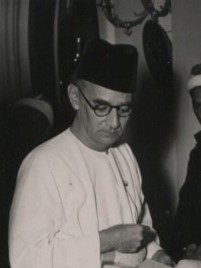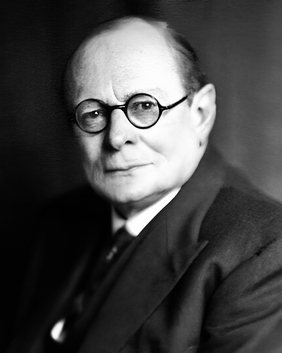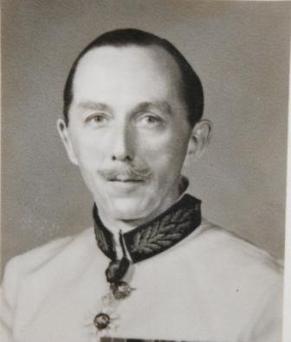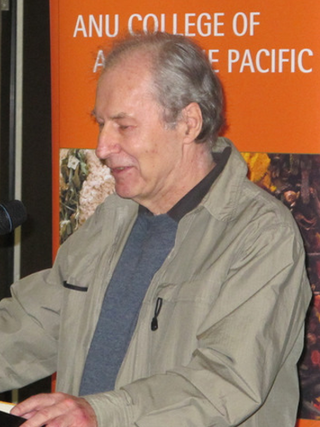Related Research Articles

Perak is a state of Malaysia on the west coast of the Malay Peninsula. Perak has land borders with the Malaysian states of Kedah to the north, Penang to the northwest, Kelantan and Pahang to the east, and Selangor to the south. Thailand's Yala and Narathiwat provinces both lie to the northeast. Perak's capital city, Ipoh, was known historically for its tin-mining activities until the price of the metal dropped, severely affecting the state's economy. The royal capital remains Kuala Kangsar, where the palace of the Sultan of Perak is located. As of 2018, the state's population was 2,500,000. Perak has diverse tropical rainforests and an equatorial climate. The state's mountain ranges belong to the Titiwangsa Mountains, which is part of the larger Tenasserim Hills system that connects Myanmar, Thailand and Malaysia.

The Malayan Union was a union of the Malay states and the Straits Settlements of Penang and Malacca. It was the successor to British Malaya and was conceived to unify the Malay Peninsula under a single government to simplify administration. Following opposition by the ethnic Malays, the union was reorganised as the Federation of Malaya in 1948.

The Federated Malay States was a federation of four protected states in the Malay Peninsula — Selangor, Perak, Negeri Sembilan and Pahang — established by the British government in 1895, which lasted until 1946, when they, together with two of the former Straits Settlements and the Unfederated Malay States, formed the Malayan Union. Two years later, the Union became the Federation of Malaya, which achieved independence in 1957, and finally Malaysia in 1963 with the inclusion of North Borneo, Sarawak and Singapore.

The Malay College Kuala Kangsar is a residential school in Malaysia. It is an all-boys and all-Malay school in the royal town of Kuala Kangsar, Perak. It is sometimes dubbed "the Eton College of the East".

The Kuala Kangsar is the royal town of Perak, Malaysia. It is located at the downstream of Kangsar River where it joins the Perak River, approximately 25 km (16 mi) northwest of Ipoh, Perak's capital, and 98 km (61 mi) southeast of George Town, Penang. It is the main town in the administrative district of Kuala Kangsar, about 235 km from Kuala Lumpur, Malaysia. The town is administered by the Kuala Kangsar Municipal Council, formerly known as Kuala Kangsar District Council from 1 January 1980 until 17 February 2004.

The National Museum is a museum located in Jalan Damansara, in Kuala Lumpur, Malaysia. The museum is situated in close proximity to the Perdana Lake Gardens and it provides an overview of Malaysian history and culture. Its facade comprises elements from both traditional Malay and modern features. It was inaugurated on 31 August 1963, and it serves as a repository of Malaysia's cultural and historical heritage.

Dato' Sir Onn bin Dato' Jaafar was a Malayan politician who served as the 7th Menteri Besar of Johor from 1947 to 1950, then Malaya. His organised opposition towards the creation of the Malayan Union led him to form the United Malays National Organisation (UMNO) in 1946; he was UMNO's founder and its first President until his resignation in 1951. He was famously known as the pioneer of organised anti-imperialism and early Malay nationalism within the entire Malaya, which eventually culminated with the Malayan independence from Britain. He was also responsible for the social and economic welfare of the Malays by setting up the Rural Industrial Development Authority (RIDA).

Malaysian legal history has been determined by events spanning a period of some six hundred years. Of these, three major periods were largely responsible for shaping the current Malaysian system. The first was the founding of the Melaka Sultanate at the beginning of the 15th century; second was the spread of Islam in the indigenous culture; and finally, and perhaps the most significant in modern Malaysia, was British colonial rule which brought with it constitutional government and the common law system.

Sir Hugh Charles Clifford, was a British colonial administrator.
Sir Richard Olaf Winstedt, or more commonly R. O. Winstedt, was an English Orientalist and colonial administrator with expertise in British Malaya.
Tan Sri Zainal Abidin bin Ahmad or better known by the moniker Za'aba, was a Malaysian writer and linguist. He modernised the Malay language with the publication of a series of grammar books entitled Pelita Bahasa in 1936 at the Sultan Idris Training College. The book contained guidelines in modernising the structure of classical Malay, transforming it into the language that is in use today: the most significant change was the switch from the conventional passive to the modern active form of syntax.

Tuanku Sir Muhammad Shah ibni Almarhum Tuanku Antah was the seventh Yamtuan Besar of Seri Menanti, who ruled from 1888 to 1933. During his reign, Negeri Sembilan came under British protection in 1889 and became a Federated Malay State in 1895.

Sir Geoffrey Edmund Cator was an English diplomat mainly active in the Malayan Civil Service.

Sekolah Berasrama Penuh (SBP) or Fully Residential School is a school system established in Malaysia to nurture outstanding students to excel in academics and extracurricular activities. Since 2008, SBPs are directly administered by Fully Residential and Excellent Schools Management Division, Ministry of Education.
Chung Kok Ming, also known as Chung Ah Ming, was a Malaysian Chinese Perak State councillor and the only Asian committee member of the Perak Turf Club for many years. He represented Perak State in soccer, hockey, cricket and tennis.

Abdul Mubin Sheppard, born Mervyn Cecil ffrank Sheppard, pen name M. C. ff Sheppard, was a Malaysian World War II veteran and prisoner of war, as well as a renowned historian and academician.
Richard James Wilkinson was a British colonial administrator, scholar of Malay, and historian. The son of a British consul, Richard James Wilkinson was born in 1867 in Salonika (Thessaloniki) in the Ottoman Empire. He studied at Felsted School and was an undergraduate of Trinity College, Cambridge. He was multilingual and had a command of French, German, Greek, Italian and Spanish, and later, Malay and Hokkien which he qualified in, in 1889, while a cadet after joining the Straits Settlements Civil Service. He was an important contributor to the Journal of the Malayan Branch of the Royal Asiatic Society (JMBRAS). On 7 November 1900 Wilkinson presented a collection of Malay manuscripts and printed books to the University of Cambridge Library. He was appointed CMG in 1912.

Harold Arthur Crouch was an Australian political science scholar and author. He had been described as "one of the pre-eminent scholars of Indonesian politics." Most of his books were published under "Harold Crouch".

Arthur Benison Hubback was an English architect and soldier who designed several important buildings in British Malaya, in both Indo-Saracenic architecture and European "Wrenaissance" styles. Major works credited to him include Kuala Lumpur railway station, Ubudiah Mosque, Jamek Mosque, National Textile Museum, Panggung Bandaraya DBKL, Ipoh railway station, and Kowloon railway station.
John Michael Gullick was a British Orientalist who is chiefly remembered for his ground-breaking contributions to the study of pre-colonial and early colonial Malay society, Indigenous Political Systems of Western Malaya (1958), Malay Society in the Late Nineteenth Century: The Beginnings of Change (1987) and Rulers and Residents: Influence and Power in the Malay States 1870–1920 (1992).
References
- 1 2 Maimunah Mohd. Tahir (Ungku.) (1987). Modern Malay Literary Culture: A Historical Perspective. Institute of Southeast Asian. pp. 76–. ISBN 978-9971-988-52-4.
- ↑ "The NST diary, DKL edition". New Straits Times. Financial Times Ltd. (via HighBeam Research). 7 September 2003.
- ↑ Bruce Gale (1981). Politics and Public Enterprise in Malaysia. Eastern Universities Press. p. 40. ISBN 978-9971-71-152-8.
- 1 2 Mackie, Jamie; Aspinall, Edward; Fealy, Greg (2010). Aspinall, Edward; Fealy, Greg (eds.). Preface: Honouring Harold Crouch. Australian National University. doi: 10.22459/SNOL.08.2010 . ISBN 9781921666469 . Retrieved 6 December 2013.
- ↑ "Harold A. Crouch". Partnership for Democratic Governance and Security (PDGS). Retrieved 6 December 2013.
- ↑ Fan Hong; J.A. Mangan (30 September 2002). Sport in Asian Society: Past and present. Taylor & Francis. p. 122. ISBN 978-0-203-49742-5.
- ↑ "Kasnor Johan". WorldCat. Retrieved 6 December 2013.